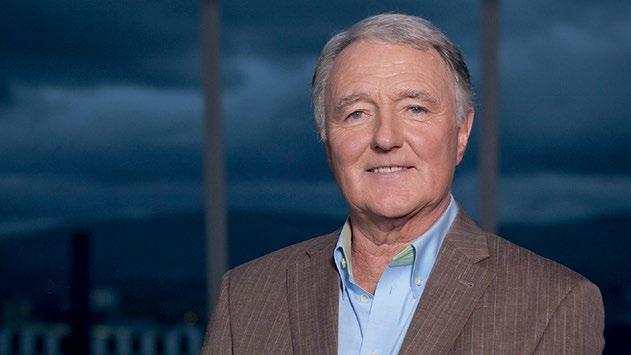Opinion
We’re all ‘stakeholder’ in this crisis
We’re All ‘Stakeholders’ in this Crisis
By Conor O’Hagan
It’s no surprise that governments in all countries are wrestling with the trade-off between lives and the economy in deciding whether to end or moderate lockdown; or that these may be the most difficult decisions they ever have to make, whether they’re good, bad or indifferent custodians of their offices. What surprises me (possibly not the right word), though, are reports from the UK such as ‘Six wealthy backers have demanded government fire back up the economy’ (Daily Mail). Not ‘Six wealthy backers have urged government to fire back up the economy as soon as it’s deemed safe’ or ‘Six wealthy backers urge government to consider the economy’ but a demand that the economy be restarted. That’s in the UK, of course – a country with, God knows, its own set of problems. But it seems naïve to assume that equivalent voices are not making the same representations to government here. But demands? To state the obvious, this is about lives and livings - not just one or the other, but a ghastly, complex and dynamic set of consequences with no certainty of making the right decision; just an absolute obligation to do the best with the information available. The implication is that these individuals feel empowered to attempt influence on a decision process that belongs only to government. Only
government has the mandate - moral and political - to make these deliberations. Only government will be held accountable for the outcomes. Only government has access to the full range of inputs that will justify the decisions, whatever they are. So as far as I’m concerned, for an individual to ‘demand’ anything other than a balanced, comprehensive and painstaking consideration of the risks involved in moderating lockdown is more than just offensive - it’s gob-smackingly outrageous; the more so because the individuals concerned face no accountability for the lives that their ‘demands’ may cost. But apparently that’s what’s happening. And yes, it’s being reported in both left- and rightwing press. Which doesn’t mean that it must be true, but does make it more likely. In the UK, there’s apparently a feeling among certain ‘business figures’ that lockdown has been somewhat over-enthusiastically embraced by British workers. Not many, if any of these notables would dare to express that thought publicly, but these are, almost by definition, people with the ear of politicians – and the underlying sentiment could hardly be clearer; the workers should damn well stop shirking and put their backs back into it. You don’t have to be a signed-up member of the Communist International to find that offensive. Lobbying is a legitimate aspect of the political
system we share with Britain – perhaps even an essential one; and the fact that business groups have more influence at times than (most) private individuals is to some degree inevitable. The balance between influences and voices is what politics is about, and it varies from system to system, place to place, time to time. But a national crisis brings different priorities. COVID-19 doesn’t fit into the existing template of affairs; it requires, like wartime, overarching priorities, not Business As Usual. Here in Ireland we’re too close, economically and culturally, to the UK to make comfortable assumptions that our system is different; that business is ‘on-message’ with public health. Of course, we need our businesses to survive and to fight for that survival. Our politicians have not only the power, but the duty to make decisions that will influence all our lives, and may cost many of them. They can and will make mistakes – they probably already have. As long as they’re honest mistakes, and they have been made after listening to informed, properly argued voices from the ‘stakeholders’ in this (which is all of us), they will suffer no more than damage to their political careers. But any mishandling of this crisis attributable to ‘demands’ of unaccountable interests would be something very different. The opinions expressed here are not necessarily those of Senior Times Senior Times l May - June 2020 l www.seniortimes.ie 5


























